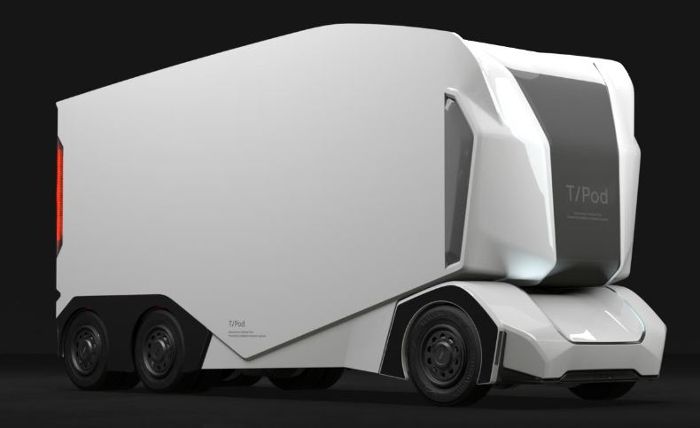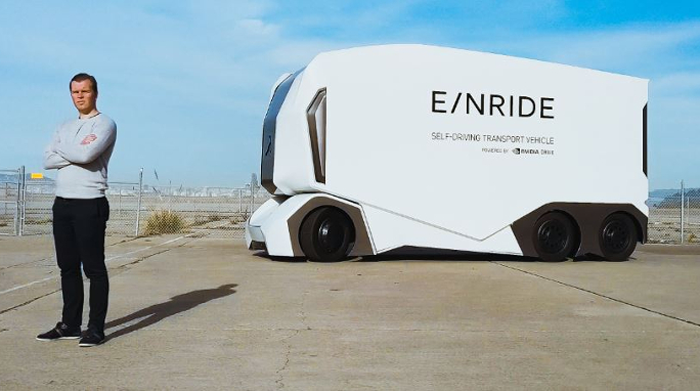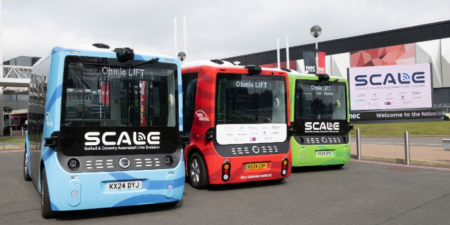The Swedish Transport Agency (STA) has given permission for a partnership between German logistics giant DB Schenker and autonomous truck developer Einride to start trials of a driverless vehicle on a public road in the country.
In November last year, the partners initiated the first installation of one of the Swedish company’s autonomous, all-electric ‘T-pod’ trucks at a DB Schenker facility in Jönköping, Sweden.
It was the first commercial installation of its kind in the world. On March 7, the STA and Einride conducted a site acceptance test (SAT) under real-world conditions at Schenker’s Jönköping logistics hub.
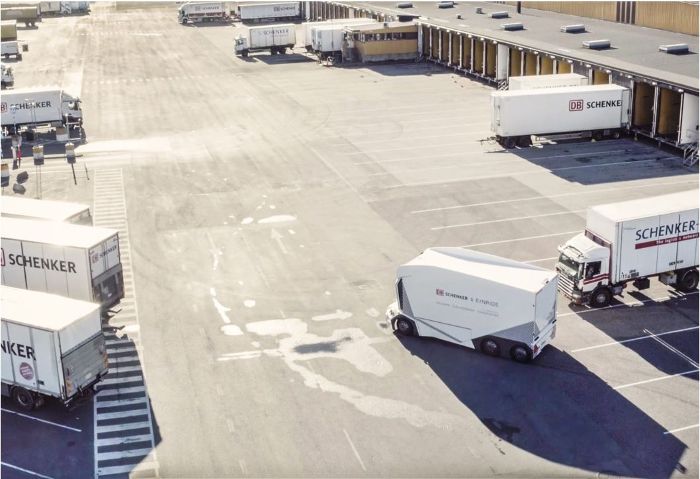 The government agency concluded that the T-pod is able to operate in accordance with Swedish traffic regulations, and on March 11, Einride’s application to expand the pilot to a public road was approved, and the government issued it with a permit to commence trials.
The government agency concluded that the T-pod is able to operate in accordance with Swedish traffic regulations, and on March 11, Einride’s application to expand the pilot to a public road was approved, and the government issued it with a permit to commence trials.
The STA permit applies to a short distance on a public road within an industrial area where traffic speeds are typically low. The permit is valid until December 31, 2020. The two companies will commence the tests of autonomous vehicles in daily transportation operations between a warehouse and a freight terminal during the spring.
Einride and DB Schenker initiated their partnership in April 2018, with the agreement including the pilot project in Jönköping and an option for additional pilots internationally. Swedish telecommunications companies Ericsson and Telia have equipped the testbed with a high performance, 5G-based cellular connectivity network.
“Autonomous trucks will become increasingly important for the logistics sector,” commented Jochen Thewes, CEO of DB Schenker. “Together with Einride, we are now able to introduce autonomous, fully electric trucks to a continuous flow on a public road; a milestone in the transition to the transport system of tomorrow.” 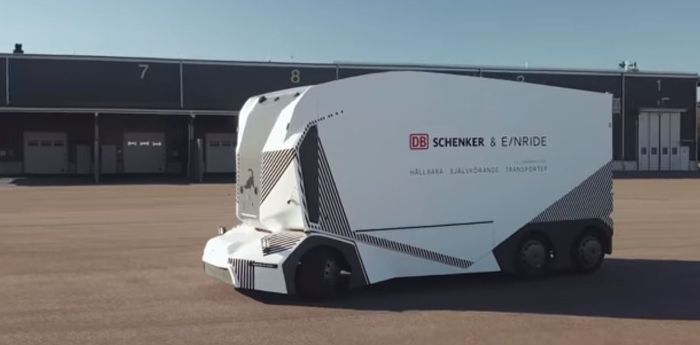
Robert Falck, CEO and founder of Einride, added, “Heavy road transport is responsible for a substantial part of global CO₂ emissions. The pilot in Jönköping is a small but important step towards a sustainable transport system. The permit from the Swedish Transport Agency is an important testimonial to the safety of the solution.”
Falck is a keen advocate for sustainable freight transportation. In a recent interview with the Swedish media, he said, “Road transport already accounts for approximately 20% of global CO₂ emissions. The tragic combination of autonomous drive and petrol- or diesel-powered engines would see that figure rise dramatically.
“That’s one scenario: self-driving as a curse for the environment. The good news is that the outcome could be very different. Remove the driver’s cab and electrification of road freight transport is perfectly feasible. In conjunction with a shift to renewables, another fast-evolving technology, CO₂ emissions could be reduced very significantly.”
Falck continued, “In most countries and states, including Sweden, testing self-driving vehicles on public roads requires a permit from government authorities. By restricting such permits to pilots with all-electric vehicles or otherwise environmentally friendly vehicles, law-makers would put pressure on the automotive industry to steer away from a dangerous path.”
